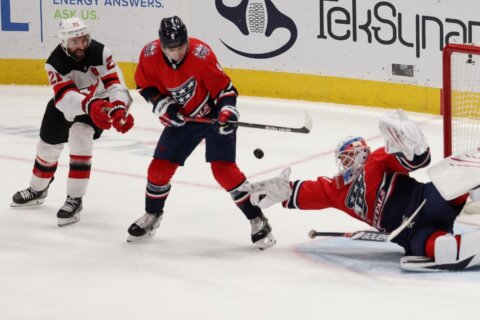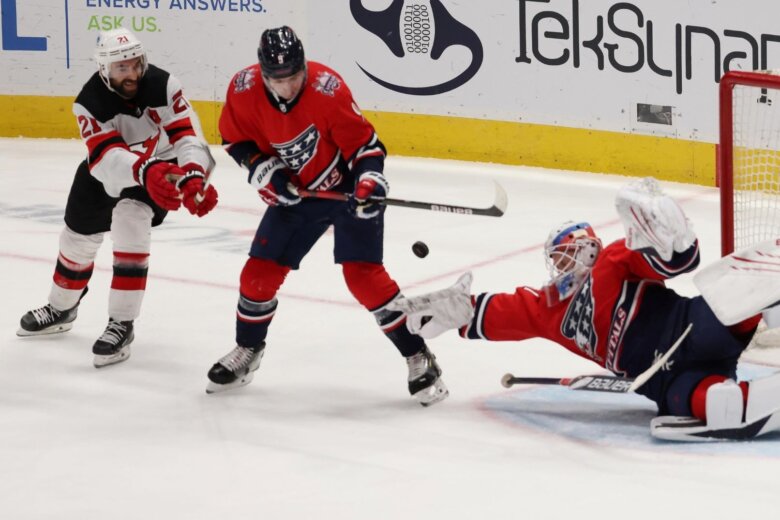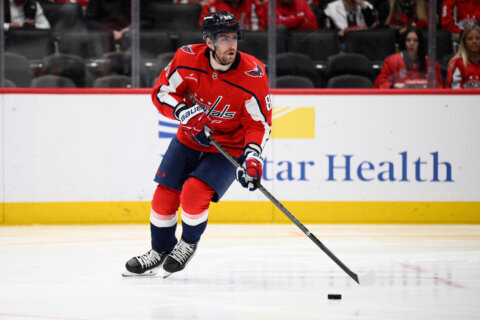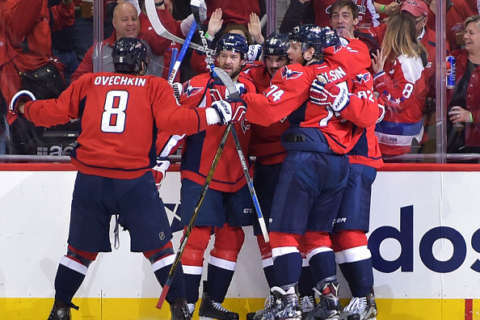
What went wrong for Capitals in 3rd period against Devils? originally appeared on NBC Sports Washington
At the end of the second period on Tuesday, the Capitals led the New Jersey Devils 4-1 and looked well on their way to an easy victory. They played the third period like the game was already decided and that came back to bite them. Three goals later, the game was tied at 4-4 with the Caps having to rally to win the game in overtime.
“I think that is not acceptable, what we showed there in the third period,” said Jakub Vrana, who scored the overtime winner. “We did not play even close to what we can play.”
“Every team is so good. If you don’t show up and play and the other team does, you’ll get your ears pinned back pretty quick,” head coach Peter Laviolette said. “It was all them in the third period.”
If you are looking for a deep breakdown of what happened, an X’s and O’s look at what the Devils did to rally, you’re not going to get one because the explanation is simple: One team kept playing, the other didn’t.
“We started playing a little soft,” T.J. Oshie said. “We were trying to make too many plays, guys swinging away and just not winning battles like we were before that.”
The Devils won every puck battle, outskated the Caps, outshot them 24-7 in shot attempts and the result was several breakdowns by Washington that resulted in goals.
Miles Wood’s goal came on a bad line change by the Caps that Jesper Bratt used his speed to take advantage of. Yegor Sharangovich was left wide-open on a defensive breakdown to pull New Jersey to within one. At that point, the Devils had all the momentum and Damson Severson tied the game as a scrambling Capitals team could not get the puck out of its own zone or even get possession of it.
“We just stopped playing,” Laviolette said. “We went out in the third period and didn’t play with the same zip that we needed to, that we played with for two periods. It was just a lot of errors to be honest with you from mishandling pucks to not executing with pucks to penalties to line changes. There’s just a bunch of things. Some bad defense tied in there as well. We had our foot on the gas for two periods and then we took it off and they’ve got a young, skilled, quick team. They can possess the puck and make plays and you saw that in the third period.”
Washington did manage to pull out the win and earn two points on the night to stay within two points of the division-leading New York Islanders. But inconsistent play has been an issue for this season and is something the team needs to address.
“We’ve gotten a little bit into this trend where we’re playing really good hockey — and this even goes from playing a really, really good game the game before — and coming back the next game and just thinking that it’s going to be easier,” Oshie said. “Or even not thinking it is but playing like it’s going to be easier. And that’s something that we certainly got to get out of our game.”
These are the kind of problems a coach like Laviolette was expected to solve when he was brought in, given his reputation for holding players accountable. But Oshie instead put the onus on the veteran leaders on the team.
The issue is not an X’s and O’s one, it is just about playing consistently from period to period and game to game. The responsibility for that does not fall only on the coaches, especially on a team with as many veteran leaders as the Caps boast.
“We’re definitely a new team but a lot of the same guys and we’ve had problems with this in the past,” Oshie said. “There has to be a maturity there that starts with the veteran players on the team and then filters through all the way down to the young guys that when we get up in games and we’re playing really well that that’s our standard. We can’t get away from that, and we can’t think things are going to be easy.
“The New Jersey Devils aren’t going to come into D.C. and take a night off. That’s just not the way it’s going to happen, and throughout the rest of the division. We really got to learn from that. We hope to be up in a lot more games moving forward and playing at an elite level, and we’ve got to find a way to stay there, and it starts with the older guys, for sure.”







